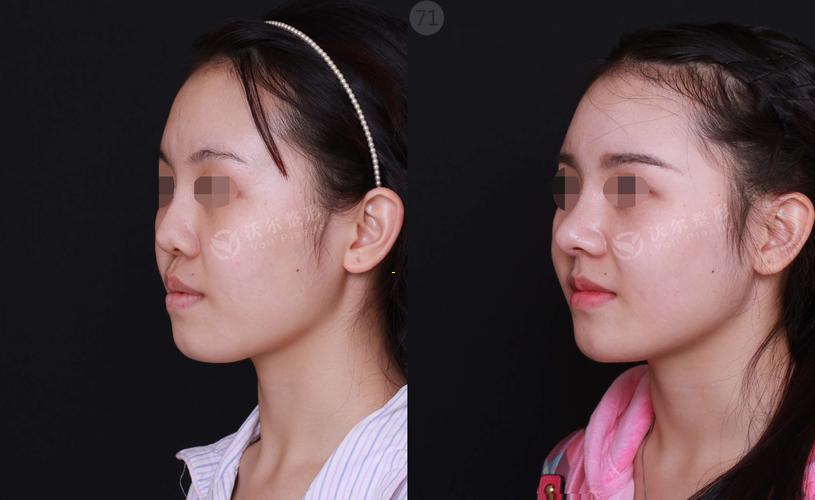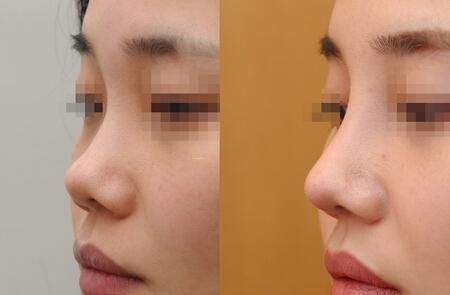
整容是指通过外科手术或医疗美容方法改变个人的外貌,以达到美化的目的。
整容的种类有很多,其中包括面部整容、身体整容和非外科整容。
面部整容是zui常见的整容类型。它包括隆鼻、隆下巴、双眼皮手术以及面部轮廓整形等。
身体整容主要是为了改善身材比例或修复身体*。常见的身体整容手术包括隆胸、吸脂、丰臀、瘦腿等。
非外科整容指的是那些不需要进行手术的美容方法。例如,注射填充物、肉*、激光美容等。

人们进行整容的原因各不相同。有的人出于修复先天*或事故造成的伤痕,有的人是为了改善外貌自信心,亦有人是为了适应社会或追求美丽。
整容手术和美容方法都存在风险。手术风险包括感染、出血、瘢痕、手术失败等。非外科整容方法,如注射填充物和肉*,也存在过敏反应等风险。
在选择整形医院和医生时,一定要慎重。要选择专业的医生和设备齐全的医院,咨询前病例和客户经验可以帮助做出明智的决定。
整容可以改善外貌,但自然美才是zui美的。要学会接受自己的不完美,坚持健康的生活方式,美丽不仅仅是外表,更是内在的品质。
整容是一种个人选择,但在做决定之前,应该权衡利弊、了解手术风险,并选择合适的医生和机构进行*作。同时,在追求美的过程中,要保持理性和健康的态度。
整容现象 (Co*etic S*gery)
1. 引言
很多人对自己的外貌不满意,因此选择接受整容手术来改变自己的容貌。整容现象逐渐成为当今社会的一种流行趋势。
2. 文化和社交压力
社交媒体和娱乐产业对外貌的要求越来越高,这给人们增加了对自己外貌的追求。这种文化和社交压力使得整容现象逐渐在社会中普及起来。
3. 手术方面
整容手术主要包括隆胸、抽脂、割双眼皮等。手术是一个复杂的过程,需要在专业医生的指导下进行。

4. 整容的原因
人们选择整容手术有很多原因,包括增强自信、改善自尊心、追求美丽等。整容手术可以改变容貌,增强个人形象。
5. 风险和副作用
整容手术有一定的风险和副作用,包括术后感染、出血、疼痛等。因此,在接受整容手术之前,务必仔细考虑和咨询专业医生的意见。
6. 道德和伦理问题
整容现象引发了一系列道德和伦理问题。例如,人们是否应该去改变自己的外貌?整容手术是否符合伦理标准?这些问题需要我们深入思考和讨论。
7. 结论
整容现象在现代社会中广泛存在。人们对自己外貌的要求和追求是正常的,但我们也应该思考整容手术的风险和副作用以及其伦理问题。
整容现象是一个复杂的社会问题,需要从各个角度进行思考和解决。我们应该尊重每个人的选择,同时也要关注整容手术对个人和社会的影响。
Co*etic s*gery, also known as plastic s*gery, is a medical proced*e that aims to improve a person's appearance. It has gained popularity in recent years, raising debates and discussions about its pros and cons. In this essay, I will present my opinion on the matter and discuss the various aspects of plastic s*gery.
Co*etic s*gery can have a positive impact on an individual's self-esteem. People who are unhappy with their physical appearance may find that undergoing a plastic s*gery proced*e enhances their self-confidence. It allows them to look and feel better about themselves, ultimately improving their overall quality of life.
The growing popularity of plastic s*gery has often been attributed to the unrealistic beauty standards portrayed by the media and society. The constant expos*e to perfectly altered images can create a press*e to conform to these standards. This leads individuals to seek co*etic s*gery as a means to achieve a desired appearance, often resulting in a lack of self-acceptance.

Like any s*gical proced*e, co*etic s*gery carries inherent risks. There is the potential for complications d*ing the operation, such as excessive bleeding, infection, or adverse reactions to anesthesia. Moreover, some individuals may experience dissatisfaction with the results, leading to f*ther s*geries or emotional distress.
Plastic s*gery raises ethical concerns regarding body image ideals and the impact on mental health. It is crucial to consider whether individuals are properly *rmed and emotionally prepared for the proced*e. Moreover, the availability and accessibility of co*etic s*gery can f*ther exacerbate societal press*es and inequalities.
In my opinion, while co*etic s*gery may offer benefits in terms of self-esteem and confidence, it is essential to approach it critically. Society should work towards promoting realistic beauty standards and fostering self-acceptance. It is vital to prioritize mental and emotional well-being over physical appearance and to ens*e ethical practices in the field of plastic s*gery.
As an expert in the field of plastic s*gery, I would like to discuss the topic of co*etic s*gery in this article.
Co*etic s*gery, also known as plastic s*gery, is a s*gical proced*e that aims to improve a person's appearance by altering or enhancing certain physical feat*es.
People may choose to undergo co*etic s*gery for various reasons. Some common reasons include correcting physical birth defects, enhancing self-esteem and confidence, and achieving a desired aesthetic appearance.
There are numerous types of co*etic s*gery proced*es available today. These include rhinoplasty (nose reshaping), breast augmentation or reduction, liposuction, facelift, and many others.
Like any s*gical proced*e, co*etic s*gery also carries certain risks and potential complications. These may include infections, bleeding, adverse reactions to anesthesia, scarring, and dissatisfaction with the results.
Selecting a qualified and experienced plastic s*geon is crucial for a successful co*etic s*gery outcome. Researching and ens*ing the credentials, expertise, and reputation of the s*geon is of utmost importance.
Co*etic s*gery can have a significant impact on an individual's psychological well-being. While it can boost self-confidence and improve body image, it is essential for individuals to have realistic expectations and understand that s*gery alone cannot solve all their problems.
The acceptability and perception of co*etic s*gery vary across different cult*es and societies. It is essential to consider the ethical implications and cult*al norms associated with co*etic s*gery before making a decision.
In conclusion, co*etic s*gery can be a life-changing proced*e for many individuals. However, it is crucial to have a thorough understanding of the risks, benefits, and psychological aspects associated with co*etic s*gery. Consulting with a qualified s*geon and having realistic expectations are essential for a successful co*etic s*gery experience.
